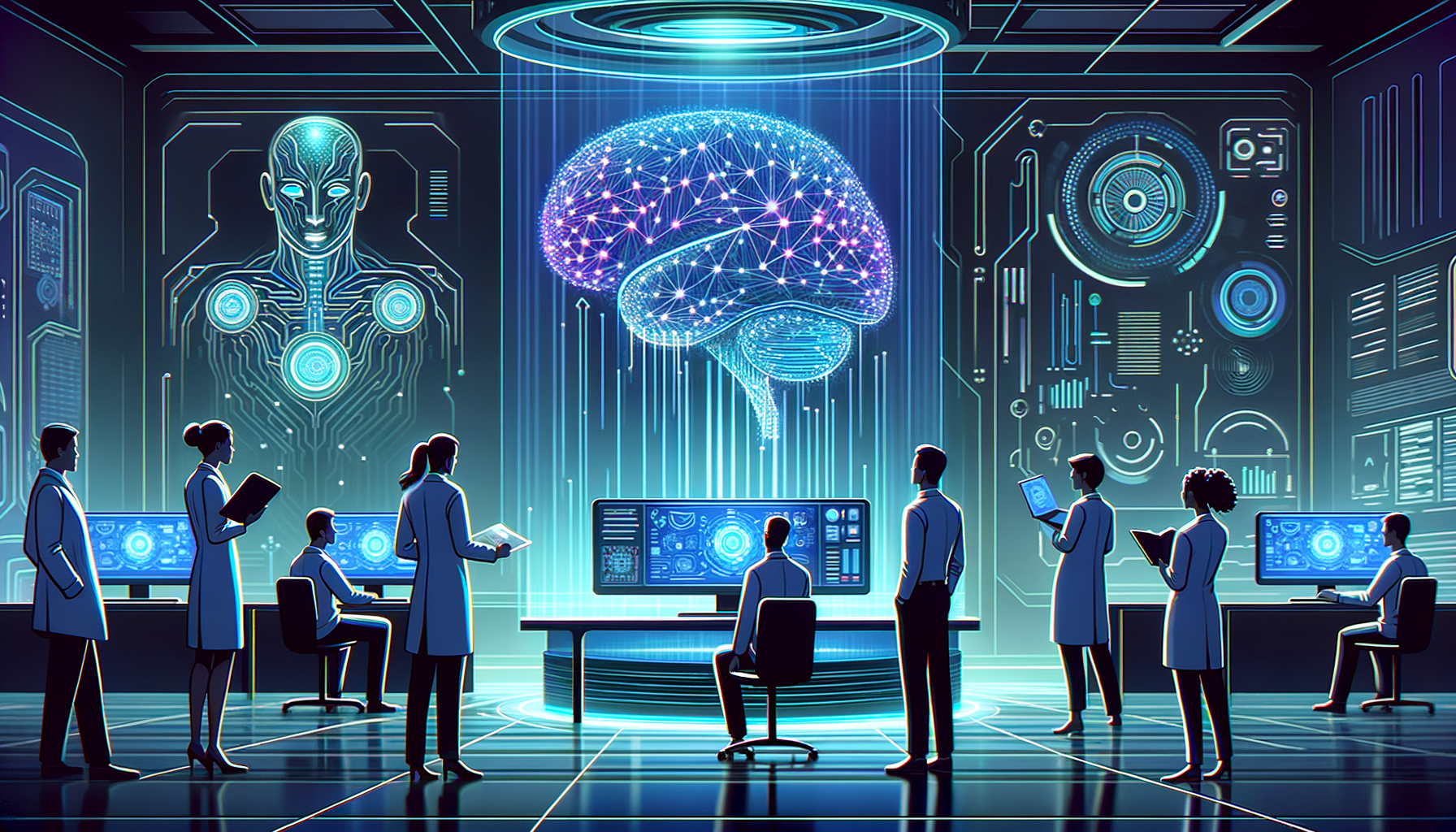Google’s Revolutionary AI: Transforming Computers with Advanced Automation
In the rapidly evolving realm of technology, **Google** has once again positioned itself at the forefront of innovation. The multinational tech giant is reportedly working on a groundbreaking Artificial Intelligence (AI) system that promises to transform how computers operate. This ambitious endeavor is not just a step forward in computational development but a potential paradigm shift in human-computer interaction.
Advanced Automation – The Vision Behind Google’s AI Development
Google has always been synonymous with innovation, and their latest venture into **AI development** is no exception. The company envisions an AI system that can effectively manage and operate computers with minimal human intervention. Imagine a world where complex computational tasks are handled autonomously by an AI, enabling efficiency and productivity beyond human capabilities.
Why Advanced Automation Matters
Advance Automation, driven by AI, has several transformative benefits:
- Increased Efficiency: Automating repetitive or complex tasks can significantly reduce the time required to complete them, allowing humans to focus on more creative and strategic initiatives.
- Error Reduction: AI systems can operate with high accuracy, reducing the likelihood of errors that often occur in manual processes.
- Cost Reduction: By automating tasks, companies can minimize labor costs and allocate resources more effectively.
How Google’s AI Could Transform Computer Operations
The idea of leveraging AI to manage computer operations offers several intriguing possibilities:
Enhanced User Experience
Google’s AI is expected to lead to a more intuitive and seamless user experience. Users will be able to interact with their devices more naturally, enjoying personalized recommendations and simplified processes tailored to their preferences and behaviors.
Real-Time Problem Solving
**Real-time analysis and problem-solving** capabilities of AI could revolutionize troubleshooting. The AI would be able to detect and resolve system issues autonomously and swiftly, reducing downtime and enhancing system reliability.
Smart Resource Management
The AI’s potential to optimize system resources is vast. By intelligently allocating CPU and memory resources, it can ensure peak performance while conserving energy and reducing operational costs, contributing to a greener computing environment.
The Road Ahead: Challenges and Considerations
As promising as this innovation sounds, there are significant challenges and considerations that Google must address:
Security and Privacy Concerns
With greater autonomy afforded to AI systems, security and privacy considerations become paramount. Ensuring that AI does not compromise sensitive data or become vulnerable to malicious attacks will be critical.
Ethical Implications
The implementation of **advanced automation** brings with it ethical questions regarding job displacement and reliance on automated systems. Balancing technological advancement with societal impact will be crucial for Google and the wider tech community.
Dependence on AI
As AI becomes an integral part of computer operations, understanding the risks of over-dependence is essential. Safeguards should be established to ensure systems remain operational even if the AI encounters unforeseen issues.
Advance Automation – Industry Reactions and Potential Impact
The announcement of Google’s AI initiative has elicited varied reactions throughout the tech industry:
Positive Reception
Many industry experts acknowledge the potential efficiency and innovation benefits that AI-driven advance automation could bring. There is a strong consensus that **autonomous computing** will play a crucial role in the future of technology.
Skepticism and Caution
Certain stakeholders express concern over the ambition of Google’s AI plans, cautioning a measured approach. They emphasize the need for rigorous testing and validation before widespread implementation.
Conclusion: A Bold Leap into the Future
Google’s pursuit of AI that can autonomously operate computers marks a bold leap into the future of technology. The prospect of more efficient, intuitive, and intelligent computing systems is enticing, promising to reshape industries and improve lives globally. However, the journey to realizing this vision will require careful planning, ethical considerations, and robust security measures. As Google navigates these challenges, the world will be watching closely, anticipating a future transformed by **advanced automation**.
“`

